Refined sugar (white sugar granules and cubes) is a BIG no for psoriasis and psoriatic arthritis. Refined sugar is manufactured by processing the juice of sugar cane (or sugar beet) with the help of chemicals such as sulfur dioxide and calcium oxide. This highly processed, chemical laden food stuff pollutes the inner body environment and offers nothing but only calories. It doesn’t contain any nutrients. (1)
Inflammation is considered as the root of all health issues and refined sugar, when consumed in excess, can increase inflammation. That’s why, over consumption of refined sugar is linked to major health issues such as obesity, diabetes, gut disorders, tooth decay, liver problems, brain disorders, hormonal imbalances and even cancer.
According to the Center for Research on Globalization, Quebec, Canada, sugar is killing us sweetly by sabotaging every aspect of our health. (2)
When it comes to a chronic health issue like psoriasis, it is not enough to “reduce” the refined sugar consumption, but, we need to quit it once and for all. Refined sugar tops the list of prohibited foods in the natural healing diet protocol as designed by Dr John Pagano in his book “Healing Psoriasis: The Natural Alternative“.
You would experience drastic reduction in psoriasis induced itching after quitting sugar. Refined sugar and table salt (common salt) are two of the chief culprits to worsen itching and inflammation in your body. Many people witness tremendous relief in itching and inflammation after throwing away refined sugar and table salt from their kitchen shelves.
Himalayan pink salt is a natural alternative to the table salt; easily available, affordable and tastes good.
Let’s find out the horrible effects of refined sugar in our body when we are already dealing with psoriasis (and psoriatic arthritis):
- Refined sugar is 100% calories- just empty calories without any nutrition. To process such a high inflow of calories, your digestive tract would actually use the nutrient reserves in your body. Hence, refined sugar actually makes your body deficient in nutrients.
- It is highly acidic. A can of sweetened carbonated cola, with added sugar, has a pH of 3 (highly acidic). It is almost 10000 times stronger than neutral pH 7 (plain water). Hence, it would need a few gallons of plain water to neutralize the highly acidic effect caused by a can of cola. The regular consumption of refined sugar can worsen the body pH scenario. The highly degrading effect of highly acidic body pH on psoriasis cannot be over emphasized. That’s why, it is recommended that our diet should comprise of 60-80% alkaline foods and 20-40% acidic foods.
- The sugary taste and highly acidic pH environment created by refined sugar is best suited to Candida (yeast) and other harmful microbes in your gut. They feed on sugar for growth and proliferation to over crowd the healthy bacteria (probiotics) and wreak havoc on your already damaged gut linings to worsen leaky gut and psoriasis.
- According to a case study published in the British Journal of Dermatology, people with oral (gum) problems are more likely to develop psoriasis. (3) Certainly the harmful bacteria in mouth plays a role here. These harmful oral microbes can make their way into the digestive tract to increase inflammation and worsen psoriasis symptoms. Refined sugar is a well known culprit to promote the growth of these harmful oral bacteria. Hence, we have one more reason to stay away from refined sugar. By the way, have you tried oil pulling yet? It involves using virgin coconut oil as a mouthwash to get rid of bad microbes from your mouth to reduce inflammation and improve oral health as well.
- Refined sugar is high in fructose- a type of simple sugar compound that is largely metabolized by the liver. Just a few teaspoons of refined sugar provide more than enough fructose to overburden the already congested liver. Psoriasis is largely associated to an impaired gut and sugar further hampers its functioning. Overloading the liver with high amounts of fructose (provided by refined sugar) coupled with a sedentary lifestyle can even lead to non-alcoholic fatty liver diseases.
- To neutralize the hyper acidic body pH environment created by regular consumption of refined sugar, your body would use the natural alkaline reserves (alkaline minerals in the bones). Gradually, it would lead to lower bone density to worsen the joint pain and stiffness associated with psoriatic arthritis.
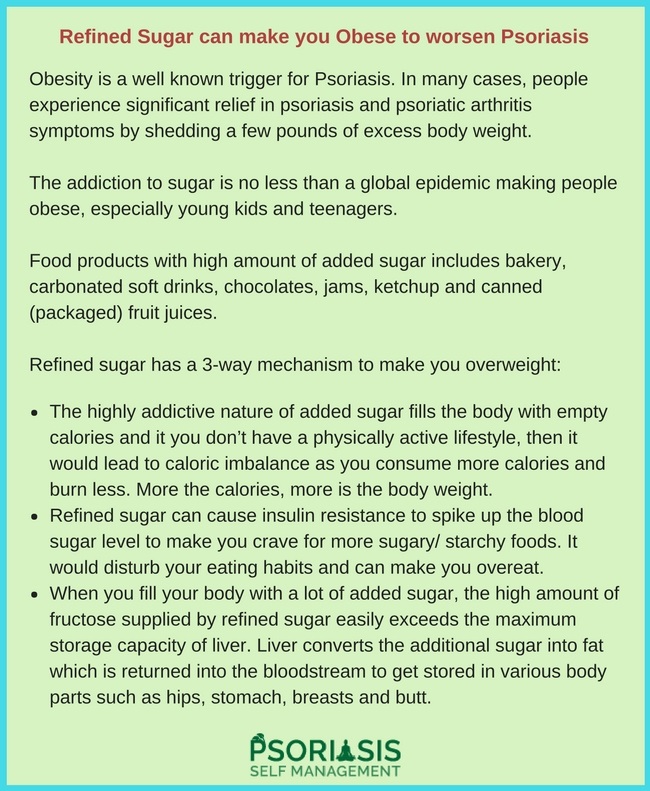
In short, stay away from refined sugar not only to relieve psoriasis, but, to improve the overall health and well-being.
What are the healthy alternatives
Turning your back on refined sugar doesn’t mean you have to sacrifice “sweet” taste for the rest of your life.
No, it’s not like that!
In fact, the Ayurveda medicine system believes that the balanced diet consists of 6 tastes- sweet, salty, sour, pungent, astringent and bitter- for optimum digestion and growth. So, just pick your favorite fruits from the list of permitted fruits and enjoy. Apart from fruits, fermented foods like yogurt (no added sugar), kefir and sauerkraut would also satisfy the desire for sweet taste. Among vegetables, you can snack on carrots, sweet potatoes and beets.
Personally, whenever I feel desire for snacks or sugary foods, I just enjoy a bowl of home-made yogurt made from the low fat, non pasteurized milk.
Ideally, you should satisfy the desire for sweet taste with above mentioned food stuffs. But, as we have discussed earlier- many people have a sort of addiction to sugar and they really need some healthy alternative which can be added in their meals and beverages. Here comes the role of sweeteners.
- Natural sweeteners like honey, stevia and molasses
- Artificial sweeteners such as saccharin, aspartame, acesulfame, sucralose and neotame. The non caloric artificial sweeteners of various brands are available in the market.
The non caloric artificial sweeteners are better to be avoided for below reasons:
- They can disturb the gut flora- the non-caloric artificial sweeteners can deplete healthy bacteria from your gut when consumed on a daily basis. (4)
- If consumed every day, they may lead to over-eating and disturbed body metabolism. (5, 6)
Considering these dangers, the American Heart Association and American Diabetes Association have given a somewhat cautious thumbs up to use artificial sweeteners as sugar substitute for every day use. (7)
So, we are left with natural sweeteners as the only option.
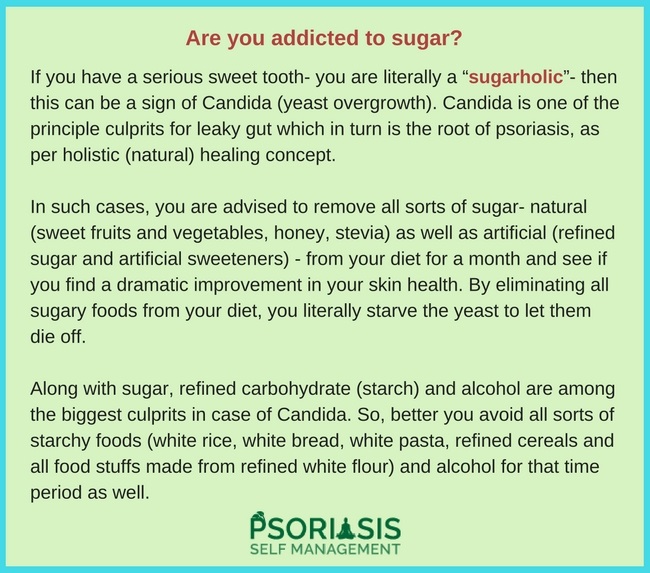
Natural sweeteners for Psoriasis and Psoriatic Arthritis
Let us discuss various natural sweeteners (refined sugar substitutes) that are widely used by people to walk away from the side effects of refined sugar:
- Honey– Refined sugar is 99.99% sugar whereas raw, pure honey is 82% sugar. (8) It contains many vitamins, minerals and antioxidants and makes a healthy natural alternative to refined sugar. (9) But, in case of psoriasis, consuming honey is quite controversial. Though it has a lower glycemic index than refined sugar, it also skyrockets the blood sugar as in the case of refined sugar and feeds the Candida (yeast overgrowth) as well. Also, in case of a compromised immune system such as psoriasis, honey is better avoided or should be consumed in small amounts only. In my opinion, we should avoid honey for the initial 2-3 months of psoriasis healing diet protocol till you achieve a significant improvement in your gut health and psoriasis symptoms. Once your gut is well crowded with the healthy bacteria and your gut innings are repaired enough, then you may re-introduce a small dosage of raw (pure, unfiltered), organic honey sometimes- not more than 1-2 teaspoons a day. As pure honey is almost one and a half times sweeter than the refined sugar, you would not need too much of honey to satisfy your sugar craving taste buds. This is all about honey and the final decision would be yours- to eat honey or not- as effects may vary between individuals.
Don’t use honey for cooking or baking purposes as honey is not suitable for heating and may cause damaging effect on your health. (10)
- Molasses– It is a thick, dark brown liquid that remains after extracting refined sugar crystals from the sugar cane juice. It is actually a byproduct of the sugar manufacturing process. This dark colored thick syrup contains various nutrients, particularly the minerals like calcium, magnesium, iron, potassium and manganese. (11) In comparison to honey, it contains less sugar, however, it still contains a lot of sugar that would feed Candida and other bad microbes in your gut. Crude Blackstrap molasses, the darkest and thickest syrup with a slight bitter taste, is the most nutrient-dense than other light and medium varieties of molasses. The guidelines for molasses are same as in case of honey- it is better to introduce molasses in your diet only after improving your gut health significantly, that too in small amounts only.
- Maple syrup– Nothing different than honey and molasses. It is just a “less bad” alternative than refined sugar.
- Stevia– By far, stevia is the best sugar substitute. It is a natural sweetener extracted from the leaves of the plant- Stevia Rebaudiana. It has no calories, no carbohydrates and zero glycemic index. Yeah, you heard it right- zero glycemic index. So, it has no effect on the blood sugar level.
Coca Cola is also planning to test stevia sweetened cola next year as people are trying to reduce their refined sugar intake considering its large scale harmful effects. (12)
Stevia leaves contain 2 chemical compounds- stevioside and rebaudioside A. Both these naturally occurring chemicals are sweet, but, stevioside has a bitter aftertaste whereas the rebaudioside A is free from any such bitterness. Most of the raw and comparatively less processed stevia extracts have both these chemicals- that’s why many people complain of a slight bitter aftertaste. Whereas the more processed, popular versions contain only rebaudioside A. By leaving out stevioside, you may enjoy a better taste, but, actually, you are missing the various health benefits linked to stevioside. Actually, stevioside is responsible for majority of the health benefits related to stevia. (13, 14)
Stevia sweetener is heat stable, hence, can be used for cooking or baking.
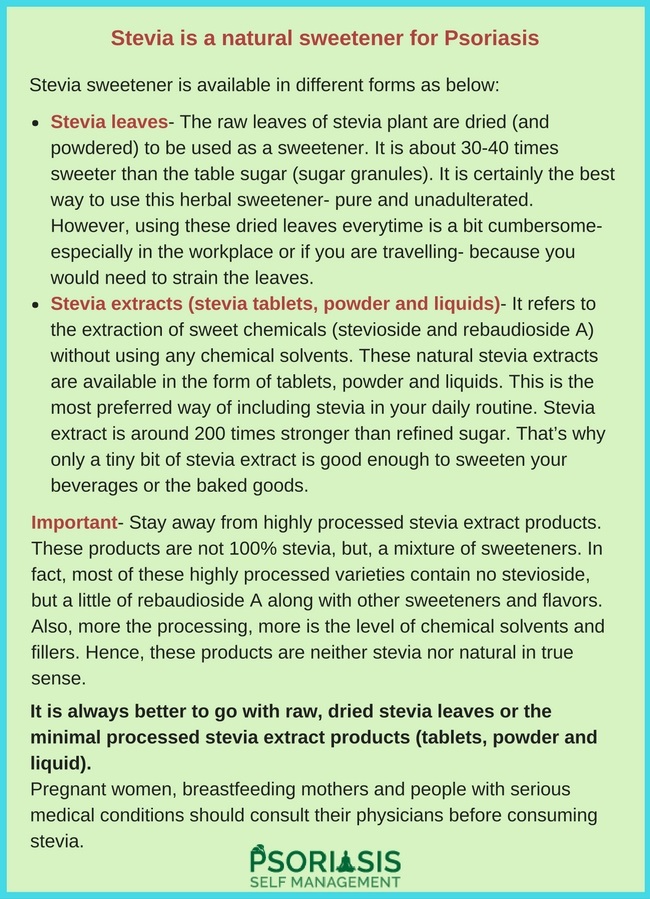
In general, stevia is safe to consume for people of all ages. However, if you experience some unpleasant symptoms such as swelling of mouth, lips and tongue; nausea, dizziness, shortness of breath or abdominal pain- then stop using it and consult your doctor.
From where to buy
Always buy pure stevia sweetener of a good brand that includes no fillers or chemical solvents. Use it only in small amounts when needed and listen to your body.
You can get stevia sweeteners at a store near to you or you may check below Amazon links:
| USA readers | India readers | UK readers | |
|---|---|---|---|
| Stevia Leaves | Click here | Click here | Click here |
| Stevia Powder | Click here | Click here | Click here |
| Stevia Liquid | Click here | Click here | Click here |
| Stevia Tablets | Click here | Click here | Click here |
The takeaway message
To sum up, it is better to satisfy the urge for sweet taste by eating fruits, sweet vegetables and fermented foods like yogurt, kefir and sauerkraut. However, those with a sweet tooth can use pure stevia extracts in small amounts and occasionally they can use 1-2 teaspoons of raw, pure honey if their bodies can tolerate it.

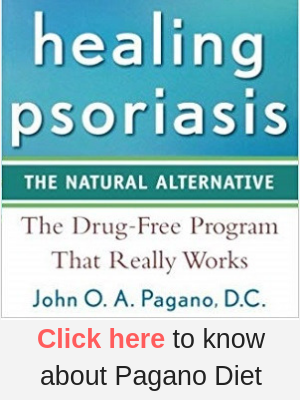
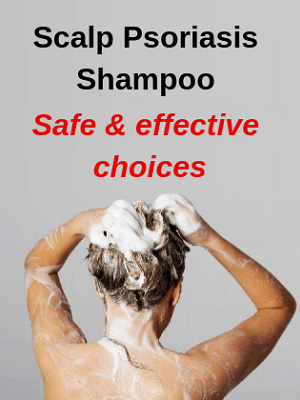
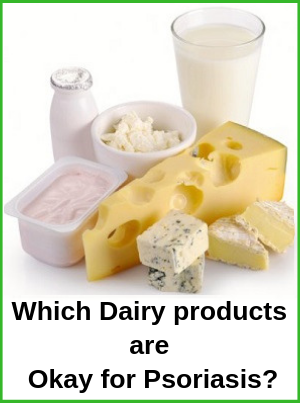
Now I can prove that cutting sugar helps with psoriasis and not just being acused it only in my head thanks.